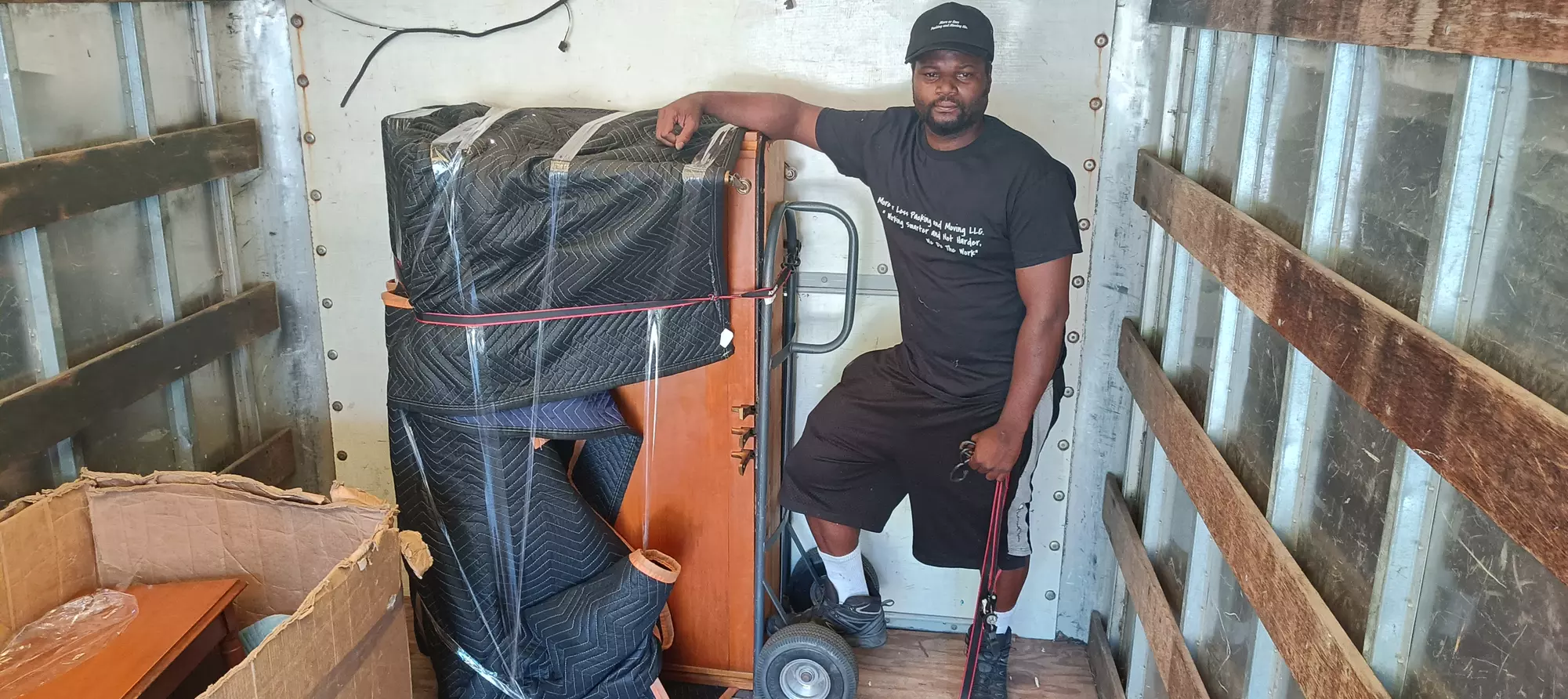Comprehending the Inclusions of moving and Freight Forwarding on the planet of Residential and Global Delivery
Steering with the intricacies of moving and Freight forwarding can be challenging. Both processes entail distinctive treatments and requirements that are essential for effective transport. Recognizing the distinctions in logistics, documents, and risk management is important for companies and individuals alike. This understanding can greatly impact the performance and safety of shipments. Several are uninformed of the details parts that affect the overall experience and end results. What elements should one consider to ensure a smooth transition?
The Basics of moving and Freight Forwarding
moving and Freight forwarding are basic parts of the international logistics market. They assist in the transfer of goods and personal belongings across worldwide and domestic borders. moving largely includes the relocation of people or families, encompassing commercial and property needs. It commonly consists of packing, loading, carrying, and unloading products at the destination. On the other hand, Freight forwarding is focused on the shipment of items, typically wholesale, making use of numerous transport modes, such as air, sea, or land.Freight forwarders serve as middlemans, working with logistics to ensure timely shipment while navigating through complex guidelines and custom-mades treatments. Both processes call for mindful planning, company, and interaction to ensure effectiveness and reduce disruptions. Recognizing these fundamentals is crucial for anybody included in logistics, as they prepared for more advanced aspects of shipping and transport monitoring.
Trick Parts of Freight Forwarding Providers
Freight forwarding solutions encompass numerous critical elements that ensure smooth transportation of items. Trick duties of Freight forwarders consist of handling logistics, working with shipments, and managing custom-mades clearance. Additionally, comprehending crucial delivery paperwork is imperative for conformity and effective motion of cargo.
Freight Forwarder Responsibilities
A reputable Freight forwarder plays a crucial function in collaborating the transportation of goods, making certain that shipments are managed efficiently and in compliance with laws. Their responsibilities incorporate different key tasks, including picking suitable transport courses, bargaining Freight rates, and taking care of logistics. They act as intermediaries in between carriers and service providers, ensuring that cargo is properly packaged and identified for secure transit. Additionally, Freight forwarders track shipments, providing updates to customers regarding the condition and expected delivery times. They additionally assess and handle threats associated with transportation, recommending insurance policy options as needed. By helping with interaction and paperwork, Freight forwarders streamline the delivery procedure, reducing prospective hold-ups and enhancing total supply chain efficiency.
Delivering Documentation Basics

Recognizing Customs Clearance and Documents
Exact documentation is important in the customizeds clearance process, as it assures compliance with various policies. An overview of customizeds policies highlights the intricacies dealt with by shippers and Freight forwarders. Common clearance challenges can greatly influence delivery timelines and prices, making understanding this element essential for effective logistics.
Value of Accurate Documentation
Steering with the intricacies of worldwide shipping requires a keen understanding of customizeds clearance and the essential function of documentation. Exact paperwork is crucial for guaranteeing that deliveries conform with policies and reach their locations immediately. Properly prepared records, including costs of lading, business invoices, and packing listings, promote smooth communications with custom-mades authorities. Mistakes can bring about delivery delays, fines, and even confiscation of products. Additionally, comprehensive documents help in tracking deliveries and solving disputes. Subsequently, businesses participated in moving and Freight forwarding have to prioritize precise documentation methods to navigate the complex landscape of international delivery effectively. This diligence not only streamlines procedures yet additionally enhances client fulfillment by making certain prompt delivery.
Customs Rules Review
Guiding customizeds policies is a crucial facet of global profession that straight influences the success of moving and Freight forwarding operations. Efficient customs clearance needs an understanding of numerous policies, consisting of tolls, obligations, and import/export constraints. Accurate documentation is vital, as it assures compliance with lawful needs and promotes the reliable motion of products throughout borders. Key records often include industrial invoices, packing listings, and bills of lading, which provide detailed details regarding the shipment. Additionally, customs brokers play a crucial duty in guiding intricate policies, functioning as intermediaries in between carriers and custom-mades authorities. By maintaining thorough understanding of custom-mades processes, companies can greatly decrease delays and decrease costs connected with international delivery.
Common Clearance Challenges
Numerous challenges can emerge throughout the customizeds clearance process, usually making complex the motion of products across borders. One substantial problem is inadequate paperwork, which can lead to delays and fines. Importers and merchants need to assure all needed paperwork, such as billings, packing checklists, and certificates of origin, is total and exact. Additionally, disparities in evaluation can trigger scrutiny from customs authorities, leading to extra obligations or inspections. Language barriers might additionally present challenges, as miscommunication can result in misconceptions regarding laws. Modifications in customs laws can develop complication, demanding continuous alertness by carriers. Inevitably, getting over these clearance tests needs extensive prep work and a clear understanding of customs demands to assist in smooth global deals.
Product Packaging and Identifying Needs
Often neglected, product packaging and labeling requirements play a vital duty in the delivery process, making certain that products are protected and conveniently identifiable throughout their trip (shipping company). Appropriate packaging safeguards products from damages throughout transit, while also promoting effective handling and storage space. Making use of suitable materials, such as bubble cover, foam, or tough boxes, can protect against breakage and loss.Labeling is equally critical. Exact and clear tags share essential details, including the location, taking care of directions, and components. Tags need to adhere to laws particular to worldwide and residential delivery, which might consist of harmful products identification or personalizeds declarations.Moreover, standard labeling methods simplify the tracking process and enhance general logistics effectiveness. By sticking to packaging and labeling requirements, organizations lessen the risk of delays, damage, or misdelivery. Inevitably, these practices contribute greatly to the success of moving and Freight forwarding operations, guaranteeing a seamless shipping experience for all events included
Tracking Deliveries: Importance and Techniques
Efficient packaging and labeling set the foundation for effective shipment monitoring, however tracking deliveries is just as essential in the shipping process. Shipment tracking offers real-time presence, which assists businesses and consumers check the progression of their items. This openness enhances customer fulfillment, given that customers can stay informed about shipment timelines and any type of possible delays.Several approaches assist in reliable tracking. Barcode scanning is an usual technique, making use of distinct identifiers to keep an eye on plans throughout their journey. In addition, GPS innovation enables accurate location tracking, enabling timely updates and enhanced logistics monitoring. Lots of shipping companies now offer electronic systems and mobile applications that supply users with easy accessibility to tracking information.The value of shipment tracking can not discover here be overstated; it decreases the danger of shed or damaged goods, enhances operational performance, and cultivates trust fund between recipients and carriers. Therefore, incorporating reliable tracking approaches is important for successful residential and global shipping operations.
Insurance Options for Your Item
Safeguarding insurance policy for goods en route is an essential factor to consider for companies and people alike. Insurance policy choices vary based on the kind of delivery, worth of goods, and certain threats involved. Usual types consist of service provider obligation, which covers loss or damage while en route, and full-value insurance, providing extensive insurance coverage for the overall worth of the goods.Shippers might additionally take into consideration marine insurance for worldwide deliveries, safeguarding against dangers associated with sea transport. It is important to analyze the specific requirements of the delivery and evaluate the terms of any type of policy.Furthermore, recognizing exemptions and constraints is critical to prevent potential spaces in protection. Carriers should involve with insurance coverage experts to discover customized services that fit their unique scenarios. Inevitably, purchasing the appropriate insurance policy can reduce monetary risks and offer comfort during the delivery procedure.
Selecting the Right moving and Freight Forwarding Solution
When selecting a moving and Freight forwarding service, it is vital for organizations and individuals to thoroughly assess their particular requirements and concerns. Aspects such as the volume of goods, location, and timeline play a significant role in this decision-making process. Investigating different providers is recommended; contrasting their services, prices, and customer reviews can disclose important insights.Additionally, it is required to think about the experience and proficiency of the service company in dealing with particular kinds of freight, especially for worldwide shipments that may involve personalizeds clearance. Transparency in pricing, including any type of concealed charges, must additionally be scrutinized.Furthermore, reviewing the degree of customer assistance provided is crucial, as prompt interaction can minimize visit this page issues throughout transportation (shipping freight). Validating the schedule of insurance policy choices assures that items are safeguarded throughout the delivery procedure. By taking these individuals, businesses and actions can make educated options that straighten with their logistics demands
Frequently Asked Questions
What Sorts Of Goods Can Be Shipped Worldwide?

Exactly How Do Shipping Prices Vary In Between Various Carriers?
Shipping costs vary substantially in between carriers as a result of aspects such as solution rate, freight kind, distance, and additional services supplied. Each service provider's rates design reflects these variables, influencing general shipping costs for customers.
Can I Ship Hazardous Products or Perishables?
Shipping harmful materials and perishables undergoes stringent regulations. Service providers typically call for specific packaging, labeling, and paperwork. Carriers should guarantee compliance with international and local laws to prevent charges and guarantee secure transport.
What Should I Do if My Delivery Is Postponed?
When faced with a delivery hold-up, one should first call the provider for updates. Review any type of notifications got, examine different services, and keep all events informed regarding the situation to minimize disruptions.
Are There Weight Boundary for Shipping Containers?
Weight limitations for delivery containers differ depending on elements like container size and shipping regulations. Typically, common containers have a maximum gross weight of around 30,000 to 32,000 kilos to guarantee safe long distance moving and storage transportation and handling. In comparison, Freight forwarding is concentrated on the delivery of items, commonly in mass, making use of different transportation settings, such as land.freight, air, or sea forwarders act as intermediaries, working with logistics to ensure timely shipment while navigating with complex policies and customizeds procedures. Key duties of Freight forwarders consist of taking care of logistics, collaborating deliveries, and taking care of customizeds clearance. A reliable Freight forwarder plays a necessary duty in collaborating the transportation of items, ensuring that deliveries are handled effectively and in conformity with policies. Efficient product packaging and labeling established the foundation for successful delivery management, but tracking deliveries is similarly essential in the delivery procedure. Numerous shipping firms now provide digital platforms and mobile applications that give individuals with very easy accessibility to tracking information.The value of delivery monitoring can not be overstated; it lessens the threat of shed or harmed goods, enhances operational effectiveness, and promotes depend on in between recipients and shippers.